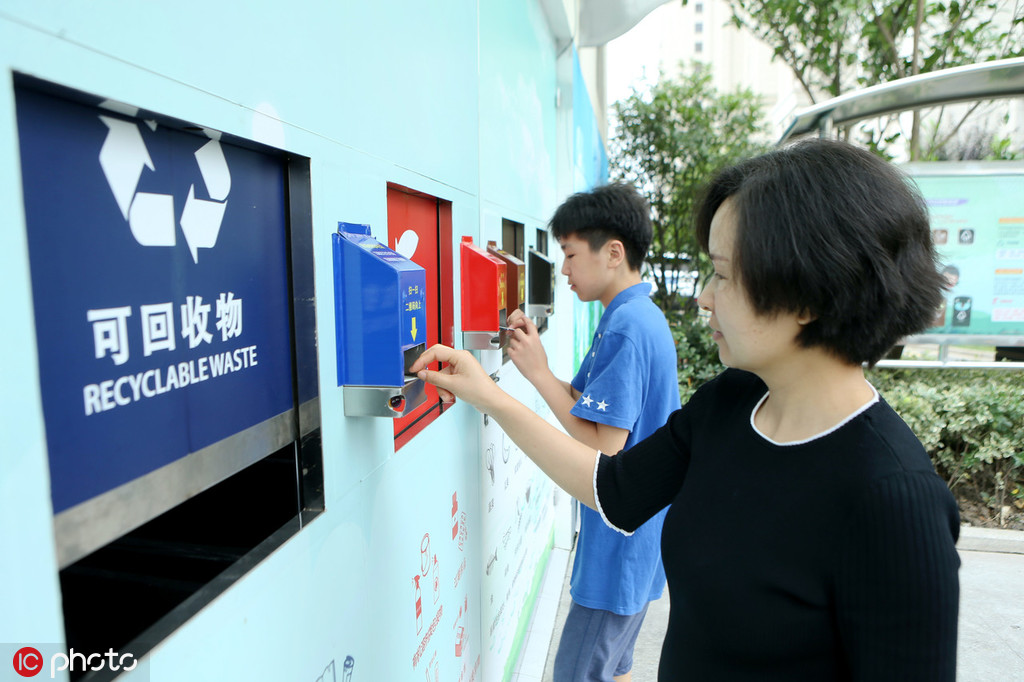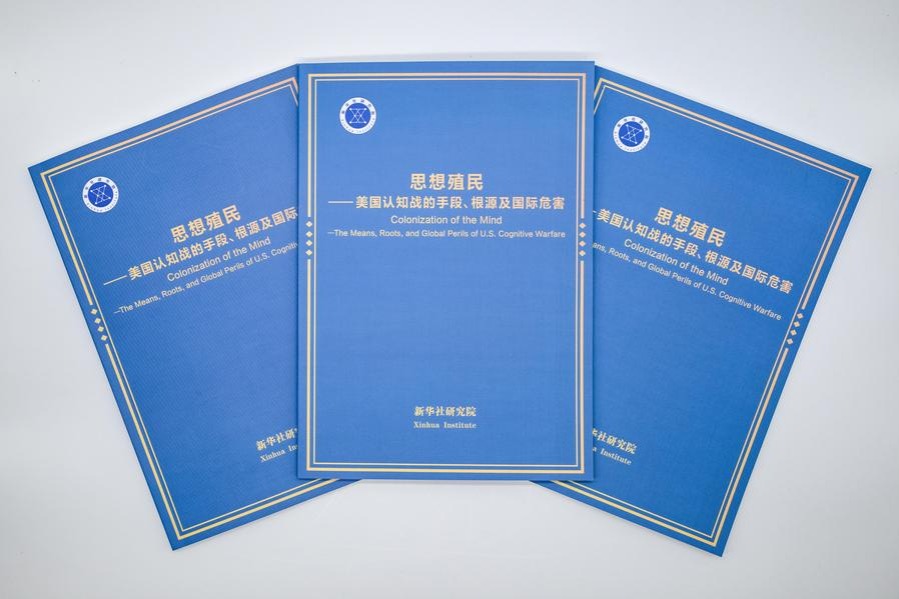Apps assist with waste classification


Puzzled about Shanghai's garbage-sorting rules? Ask your phone.
Discovering the proper classification for each piece of household waste before disposal-and dodging fines of up to 50,000 yuan ($7,200)-has become as simple as snapping a photo on your smartphone or talking to it thanks to the efforts of a group of young programmers and user interface designers.
They have applied speech and image recognition technologies to apps and other smartphone services to guide Shanghai residents through China's first mandatory garbage-separation plan, which came into effect this month.
The rules require every household and institution to classify waste into four categories-recyclables, kitchen waste, hazardous waste and residual waste-with a long list of items in each category. Noncompliance could lead to fines.
Previously, everything went into one bin, and the dramatic change has made many Shanghai residents worried, along with hundreds of millions of people living in 46 cities due to adopt similar rules by the end of next year.
Many residents said they were struggling to master the details quickly.
To smooth the transition and raise public awareness, Shanghai's municipal government launched a sweeping publicity campaign featuring posters and TV programs introducing garbage-sorting techniques.
"It has become a lasting topic for my family's mealtime discussions," 27-year-old Shanghai resident Fang Chengxiang said.
He said they used the internet to find out how to classify household waste properly. "I would often Baidu the name if I got confused," Fang said, referring to China's leading search engine.
To meet the demand for such information, a number of tech-savvy 20-somethings made use of their programming and design know-how to roll out a flurry of phone services before the plan came into effect.
Most of the apps and services, which began springing up last month in app stores, on messaging tool WeChat and mobile payment service Alipay, allow users to type in the name of waste to identify which category it belongs in.
A number of apps use speech and image recognition to make the process easier.
One of the apps using speech recognition is Shenme Laji (What Garbage), whose downloads topped 130,000 in the first week after it was released on Apple's App Store early this month.
It was designed by zzz studio, a trio comprised of a programmer, an advertising art director and a visual designer who are based in Shanghai and Hangzhou, Zhejiang province. Since they all have 996 jobs-meaning they work from 9 am to 9 pm six days a week-the app was designed in what little spare time they have.
Liu Yiyi, 23, a member of the studio and a full-time art director at an advertising agency, said the app's initial success was largely a result of its simplistic and eye-pleasing design and its practical speech recognition function.
"Typing in the names can sometimes be a complex undertaking," he said.
Though the app was intended to cater to all age groups, Liu said speech recognition facilitated use by young children, the elderly and people with visual disabilities-groups facing the greatest challenges in adapting to the changes.
The Guide to Garbage Sorting service, available on WeChat and Alipay, allows people to type in names and use image and speech recognition to classify waste.
The program was developed and released in early June by Shanghai-based programmers Wang Xu and Zhou Li.
Wang, 26, said it was processing an average of 60,000 searches a day on Alipay, and 9,000 on WeChat.
"I wanted to help people sort ambiguous items as fast as possible, such as the shell of a melon seed," he said. "Image recognition can help when you are unable to name the object straight away."
Similar services are springing up as more cities adopt garbage-sorting rules, but their creators say they will disappear in time.
Liu, whose app has the maxim "you will no longer need me someday" on its welcome page, said it was designed to help people through the transition period and reduce their reliance on such services thereafter.
"As Chinese become accustomed to the rules, people are destined to use the apps less often," he said, adding that incorporating the basics of waste classification in classes at school will also contribute to the process.
Wang said he has already noticed changes in people's behavior.
"My colleagues have become used to cleaning single-use food containers before throwing them out," he said.
- More remains of Chinese martyrs to return from ROK
- Shanghai congress highlights latest minimally invasive gynecological treatments
- Xi sends congratulatory letter to 25th China intl investment, trade fair
- Typhoon Tapah makes landfall in South China coastal province
- Beyond the strings
- Crafting talent for tomorrow's industries






































